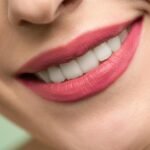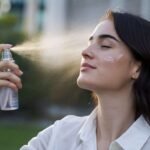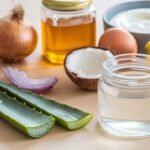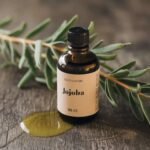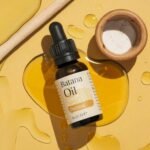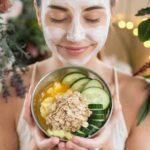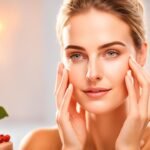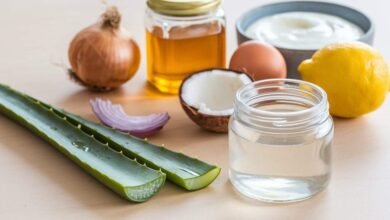How to Use Different Gels in Your Skincare Routine in 2024 Effectively
Welcome to My website hope you are All well And Fine. If any question please drop your comment below
In this article we will discuss about how to use different gels in your skincare routine. Skincare routines have progressed dramatically these days, and it is no longer about moisturizers and simple cleansers but also about tackling several skin concerns using numerous products. These types of products come with a very thin form of formulation, which makes them perfect for daily application while keeping active ingredients in their place.
Whether is it acting against acne, treating dry skin and the effects of age or it just aims to keep your skin looking healthy, including various kinds of gels in your skincare routine will show good results. In the guide, we are going to specifically focus on the variety of gels available for skincare, and consider factors such as other gel products, effectiveness, and the ideal ways of using this product.
Understanding the Significance of Skincare Gels
The gel form of skincare products is advantageous, as it possesses certain peculiarities and is flexible at performing various functions. Contrasting with creams and lotions which are either heavy or greasy, gels have a good feeling that goes on light and absorbs easily making them great products for all skin types. Moreover, gels carry acting components into the skin’s surface to stimulate their uninterrupted penetration into the active layer. Regardless of your skin type and the goal you have in mind: be it to hydrate, soothe your skin, or treat skin concerns- there’s a gel out there that will meet your needs.
Exploring the Types of Skincare Gels
When it comes to skincare gels, there are two main categories: Those include formulas that are water-based and oil-based. Water-based gels are suitable for oily or combination skin because they hydrate the skin without introducing unwanted excess shine to the skin. Meanwhile, the natural ones are full of vitamin A to reduce wrinkles, and the oil-derived gels are nourishing and good for dry or mature skin, thus a layer of waterproof protection is created to lock the moisture inside the skin. When it comes to ingredients, it is divided into 3 categories from which an abundance of formulations is made, with each formulation tackling a range of skin concerns that may be aging, acne, or hydrating skin.
Identifying Your Skin Type
Before putting gels into your routine for the skin, you should learn the characteristics of your skin to choose those cosmetics that would work better for you. Oily skin types can find effective solutions in gel-based, water-light products which are perfect for hair care and other applications, whereas dry skin types may need oil-rich, oil-based products that provide enough moisture. Combination skin types, those with the oily and the dry parts, are likely to benefit from well-balanced formulas that take both these currents into account. Also, those of us with reactive skin should choose non-fragranced non-irritating gels. These can help prevent these irritations and allergies.
Choosing the Right Gel for Your Skin
The choice of a gel in the market is not straightforward with many products marketed. However, you should base your choices on your skin type, different issues to resolve vis-à-vis makeup requirements and specific ingredients to be used. Search for these over-the-counter gel formulas that are enriched with essential ingredients that match up with your treating needs. For example, hyaluronic acid for hydration, salicylic acid for acne, and retinol for anti-aging. Moreover, be thoughtful about what texture and finish the gel will have, and select those that are not heavy and get easily absorbed into the scalp without leaving greasiness.
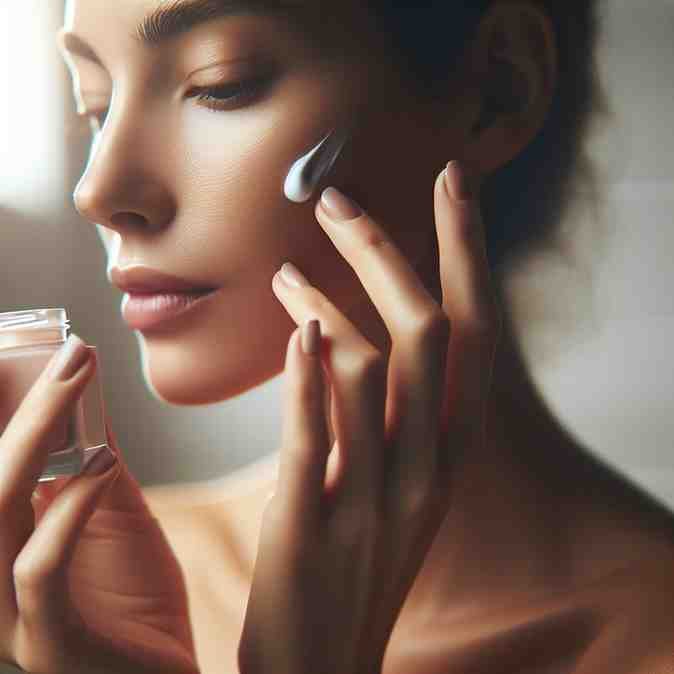
Incorporating Gels into Your Skincare Routine
After you’ve settled yourself with the right gels for your skin, you must integrate them properly into your skincare routine, and that they bring to the skin the desirable results. In the morning, start the day by cleansing your face with a light gel-based and then rinse off to remove the customer’s impurities as well as the excess oil secreted. Then to seal everything, use a water-rich gel or serum, which will restore the moisture and protect you from the environment. Be sure to apply a facial sunscreen gel in addition to any makeup you use, with broad-spectrum SPF which will absorb UV light.
Get prepared in the evening by using an oil-based cleanser for the first step, rinse your face with water, and then follow it with a gel cleanser to remove makeup, sunscreen, and other impurities. Then move on to apply any gelish formulas meant for addressing skin problems like retinol (which is for anti-aging) or hyaluronic acid (which works on hydration). Complete your end-of-the-night regimen with a gel moisturizer or sleeping mask. This helps keep in moisture and allows the body to get repaired and renewed while sleeping.
Spot Treatments with Gels
Regarding specific skincare problems such as acne spots or blemishes, special gels with unique formulations are capable of reaching the desired effects. Rub acne-fighting gel into the red region of the breakout to decrease inflammation, decongest pores, and promote skin regeneration. Choose a product with a composition consisting of salicylic acid, tea tree oil, or even benzoyl peroxide – the best cure would be these miracle components. Moreover, soft gels holding ingredients such as aloe vera or chamomile among other things may produce relief in irritated, inflamed, or skin.
Also Read:
- Top 10 Moisturizers for Every Skin Type
- Top 6 Benefits of Primose Oil For Skin.
- My Dental Healthy Journey
- Understanding Hair Porosity: Tests, Tips, and Care Routines
- Top 10 Amazing Benefits of Rose Water for Skin
Specialized Gels for Specific Concerns
Furthermore in the line of basic skincare routines, there are also gels available to be used on specific skincare issues that are loaded with medicated solutions, aiming at providing detailed solutions to such issues. Anti-aging creams and gels with ingredients like retinol, peptides, or vitamin C are among these products that have been approved and are proven to be effective in minimizing lines, wrinkles, and even other signs of aging. Vitamin C, niacinamide or alpha hydroxy acid-based brightening gels which work on the signature of dark spots, hyperpigmentation as well as discoloration are effective in extenuating uneven skin tone.
More water-holding gels (gel-like products) which are enriched with hyaluronic acid, glycerin, or ceramides provide deeper moisturization for the dull, dry, and dehydrated skin.
Layering Gels in Your Skincare Routine
The delicate layering of gels in your skincare routine means putting a lot of different product textures as well as formulations on your face to effectively target and neutralize specific skincare concerns. Begin with product layering of light, water-based types like gels and serums before moving on to substantial, oil-based products such as creams and gels.
After letting each product fully absorb, close the subsequent layer on top of it this way, you can minimize the piling and package more. Handle the creams or lotions with sun protection during the day and apply the night treatment in the form of a soothing sleeping mask or a healing rejuvenating gel to fasten the sealing process of skin moisture and speed up skin repair and renewal.
Frequency of Gel Application
Finding the rhythm at which you will be using only the desired gels depends on your skin type skin concerns and what the product is. Skin can be hydrated using gels and serums as these can be used both in the morning and night time as well this would help to retain the levels of hydration and the health overall of the skin. Topical gels or creams including active compounds such as retinol or acids shouldn’t be used over the instructions given by the manufacturer to avoid the occurrence of excessive exfoliation or irritation. The spot treatment can be applied where necessary, the aim being to combat specific skincare issues (acne, blemishes, inflammation, and irritation of any kind).
Combining Gels with Other Skincare Products
Gels come as highly effective standalone skincare, and may also the products that may boost the level of its usefulness and give out complete skincare benefits. Seal light forms of gels and serums under thicker, oil creams to make certain that all components penetrate deeper and absorb properly. It is critical to keep dissimilar products or formulas away as they may lead to excessive pilling, irritations, or diminished product effectiveness when combined. Fix the mixture that is suitable for your skin by trying out different combinations.
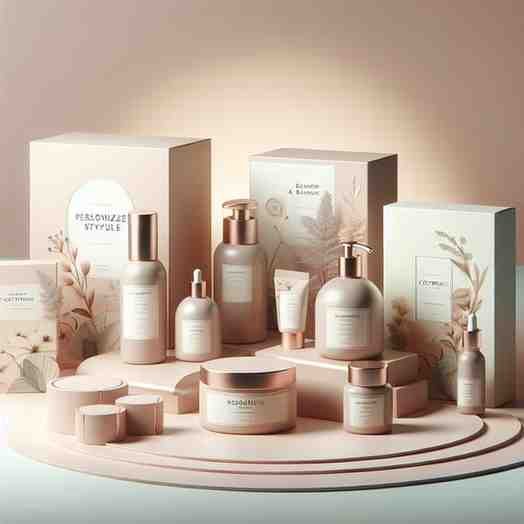
DIY Skincare Gels
For people who like the tang washes hands-on skincare, making exfoliating gel forms using natural ingredients can be an interesting and rewarding experience. We will prepare some recipes for housemade natural-based gels; these include aloe vera gel, hyaluronic acid serum, and green tea gel. On the other hand, care should be taken if you are DIY on skincare recipes as you are inclined to use clean and sterile objects and perform patch tests on new ingredients before using them on your face or body.
Storage and Shelf Life of Skincare Gels
Smart preservation of skincare gels is vitally important to ensure their effectiveness and keep their expiry periods longer. Skincare gel should be kept in a cool and dry place in the shade and away from humidity as this may result in the breaking in of active ingredients and bacterial growth. Ensure that the tops of the containers are closed very well to exclude air and impurities from getting inside, and also check the expiry dates of skincare products regularly to ensure that they remain fresh till you are done using them.
Understanding Expiration Dates and Signs of Product Degradation
Skin products responsible for gels such as gels lose their efficacy as a result of decaying because these products have limited shelf life and are open to air, light, and bacteria. Check for milestones that can indicate your product should be discarded after opening and be on guard against any changes in color, texture, or smell that mean your product’s gone bad. Make sure you show your care by checking for signs of spoilage or deterioration. Make a good decision and put a fresh one in its place to prevent your skin from catching a disease.
Potential Side Effects of Skincare Gels
Skin gels can provide numerous benefits for the skin, and the majority of individuals will experience no discomfort or the product’s side effects, but skincare gels can cause side effects in some individuals, especially those with sensitive or reactive skin. The most common side effects of these treatments are redness, irritation, or allergic reactions since they can be from many different parts; fragrances, preservatives, and natural substances among others. A crucial point is the limiting of side effects, therefore, a patch test should be made before using the gels with the new products and starting with lower concentrations/less frequent use of gels with active ingredients of high strength to avoid the occurrence of side effects..
Consulting with a Dermatologist
While skincare gels can be of help in improving the look and health of your skin, contacting a dermatologist or expert on this case may be crucial for identifying personal aspects being better addressed. If you are uncertain about your skin type and concerns, experiencing quite a noticeable or persistent ‘side effect’ with your skincare gels, considering including prescription-strength products into your routine, consult your offer professional advice to achieve the best-of-the-best treatment outcomes.
Incorporating Gels into Body Care
Moreover, in the same context of facial masks, the gels are equally important in addressing different problems and promoting overall skin health throughout the body using side effects such as elsewhere. The body exfoliating gel can contain ingredients like alpha hydroxy acids or enzymes which can remove dead skin and promote new cell generation for a smoother and softer look. Body gels and creams that we can apply on our wet skin just after a shower seal moisture and hence protect dryness and deficient hydration. Body gels that firm and target specific areas, often cellulite or sagging skin, can circumvent skin problems such as texture and tone irregularity giving a more youthful outlook.
The Environmental Impact of Skincare Gels
Along with an increasing eco-awareness of consumers, the sustainability of gels, as skin care products, is under further observation. Yes, most skincare gels contain artificial or bio-based raw materials, their polluted production, use, and disposal may hurt the environment. The scope of eco-friendly skincare products should include the selection of formulas prepared of organic or biologically sourced ingredients, packaging made of recyclable or compostable materials, and production involving greener practices.
Cultural and Historical Significance of Gels
Many different cultures from around the world, including ancient civilizations, have long been practicing various rituals with gels, which is a testimony to the universal need of every human to have perfect skin and be healthy. The practice by some ancient civilizations, for example, Egypt, India, or China, to produce health from plants and to use herbal preparations to cleanse, protect, and balance skin dates back. Now in the days of modern skincare, the formulations have been made more advanced by the utilization of scientific language and advanced technology to invent more effective and innovative solutions.
Marketing Hype vs. Scientific Evidence
In this highly competitive skincare market, it becomes imperative to know what the marketing hype is and whether it is based on science or not, when you are choosing skin care products and gels. Aim to find reasonable devotion supported by scientific studies, research, and evidence to prove the product benefit. Watch out for the hyperboles, celebrity endorsements, or anecdotal testimonials solely based on experiential evidence and with the lack of credible scientific study. Through companioning evidence-backed info and guidance, the consumers can make the desired decision on this skincare routine that can bring about an optimized outcome in your skin health and freshness.
Conclusion
The usage of the different gels in your daily skincare routine can be a revolutionary step, bestowing on your skin deep hydration, intense nurture, and targeted treatments that address many skincare needs you might be concerned about. Be it acne, dryness, aging, or the desire for glowed skin – there will always be a gel prepared for you ready to handle the issue. Through learning the characteristics of various gels, recognizing your skin, and religiously adhering to personalized skincare add-ons you will successfully optimize these useful skin care products. Sample, learn, and feel the aura of well-being with skincare gels. Through the use of gels, the skin attains a healthy, radiant appearance.For more visit our website.
FaQs About How to use different gels in your skincare routine:
1: Can I use multiple gels in my skincare routine?
Absolutely! Using different layers of gels may be working on several factors in the process. Yet, we also reflect the significance of the different components and make sure they all complement each other and not diminish. HVS systems might have an advantage of propositiong, for example, combining hyaluronic acid gel with vitamin C gel to give derivatives of hydration and antioxidants.
2: How often should I apply skincare gels?
The habit of use should be adopted in a way that it is well adjusted to your skin’s needs and the properties of the gel you use. Such groups if associated with active ingredients like retinol or exfoliating acids are best applied in the evenings as to rule out photosensitivity. Whatever you do, for daily hydration you can use a hydrating gel both morning and night in order to keep your skin in its optimum hydration.
3: Can I use gels with other active ingredients like serums?
Yes, you can. While there are variations in individuals tolerances, attention should be given while introducing them to new products to avoid agitation and adverse reactions. Firstly, go through the patch test of those combo of gels-and-serums on a certain portion of your skin to make sure its safety. Besides, also remember that a skin specialist is an invaluable source of information if you get confused about which components you can or should use
4: Are skincare gels suitable for all skin types?
Many gels of skin care products are developed to be for all skin types. Finding the appropriate gel for your skin needs and omitting sensitivities is a must to exclude the undesired effects. As an illustration, someone with oily or pimply skin requires the soothing island rich in salicylic acid, whereas the one with dry or fading skin tends to find wetter formulas with hyaluronic acid more useful.
5: Can I use skincare gels in the morning and evening?
Please, yes, you’re allowed to fit the skin-care gels not only into the morning but the evening routines too. However, make certain that the ingredients in this kind of gels and the products should match or be safe for the skin from applying to the skin in the morning. Make sure you adhere to the manufacturer’s guidelines and regularly pay attention to you skin’s point.
- Top 10 Moisturizers for Every Skin Type
- Top 6 Benefits of Primose Oil For Skin.
- My Dental Healthy Journey
- Understanding Hair Porosity: Tests, Tips, and Care Routines
- Top 10 Amazing Benefits of Rose Water for Skin
- Aloe Vera Hair Masks for Healthy and Beautiful Hair
- Natural Ways to Remove Sun Tan Fast
- How to Get Thick Hair: Simple Habits for Thicker, Longer Hair
- Is Jojoba Oil Good for Low Porosity Hair?
- Top 7 Skin Benefits of Batana Oil
- DIY Face Masks for Glowing Skin: Natural Remedies
- Natural Remedies for Clear Skin: Glow Naturally
- Rosehip Oil for Acne Scars: Does It Really Work?
- Almond Oil for Hair: Tips for Thicker Locks
- Top 10 Natural Remedies to Stop Hair Fall
- Benefits of Argan Oil for Long And Silky Hair
- I Ate This And Achieve Flat Belly And Glowing Skin
- How to Reduce Sunburn Redness Overnight
- How To Look Pretty In 5 Mins Without Makeup
- 10 Best Sunscreens For Sensitive Skin


